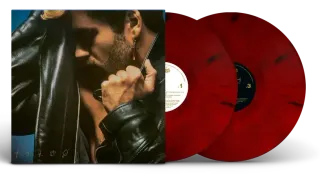May 17, 2019
Officer Quits After Confronting Black Man Picking up Trash
Kathleen Foody READ TIME: 3 MIN.
A white Colorado police officer who confronted a black man picking up trash around his dormitory resigned this week under an agreement that lets him collect $69,000 in salary despite violating department policies.
Body camera footage released Thursday provided a full video account of the tense encounter, which gained national attention based on video shot by someone inside the building. That footage only showed Zayd Atkinson holding a bucket and a tool for picking up trash as police officers surrounded him outside the dormitory for students at Naropa University, a liberal arts school associated with Buddhism.
An attorney for Atkinson called the agreement with the city of Boulder "ridiculous."
"Boulder is essentially saying we're going to pay this officer and let him resign for threatening Zayd's life, for racially profiling Zayd," attorney Siddhartha Rathod said. "If you or I were to do this, we would be criminally charged. We would immediately lose our jobs."
In a statement, City Attorney Tom Carr said firing the officer, John Smyly, would have led to a drawn-out appeal and potentially allowed him to keep his job.
Under the agreement, Smyly resigned his police role on May 9 but will remain an employee through February without performing any work. He will receive "commensurate pay and benefits" during that period and "a single, lump sum" payment for any accrued and unused vacation time when his employment officially ends Feb. 9.
A phone number for Smyly could not be located Thursday. He did not mention the incident in his resignation letter.
According to the new video footage, Smyly approached Atkinson on March 1 in front of the condo-style building, where he was using a metal tool with a claw at its base to put trash into a bucket. Smyly said he noticed Atkinson on the building's rear patio and wanted to see if he lived or worked there.
After Atkinson said he did, Smyly asked for identification with the address on it. Atkinson provided his school ID, which did not have an address and then offered to let himself into the building as proof.
Smyly next asked for Atkinson's date of birth. Atkinson refused then picked up the bucket and tool and walked away.
"Put that down," Smyly said on the tape. "Stop!"
He then told Atkinson that he was obstructing a police officer, "a jailable offense." Smyly later told Atkinson that he was being detained for trespassing.
Smyly drew his Taser and followed Atkinson to the back of the building, repeatedly telling him to sit down on the ground and put the "weapon" down, referring to the trash tool. Atkinson repeatedly said he had not done anything wrong.
"Your hand is on your weapon and you're gonna shoot me," Atkinson shouted. "That's what you're gonna do officer? You're gonna shoot a resident on his property for picking up trash?"
An investigative summary said Smyly drew his gun when the two men reached the back of the building. On the video, Atkinson responds by shouting: "That's a gun! I'm picking up trash! I'm picking up trash and you're holding a gun!"
After about eight minutes, more Boulder police officers arrive and form a loose half circle around Atkinson.
One officer can be seen holding a rifle; the investigative summary says the weapon fires bean bags. According to the summary, one officer drew his handgun when he arrived but re-holstered it in less than a minute while Smyly had his gun out until Atkinson put the trash-grabbing tool down.
The report released with the video footage said Smyly had no authority to detain Atkinson or probable cause to charge him with any crime and should have left once Atkinson provided his name, address and his reason for being there.
Atkinson, 26, said he believes Smyly should have been fired immediately. He said he has had trouble sleeping since and spends time outdoors or with friends to calm him.
"My life right now is kind of restless, unsettled," he said.
Carr, the city attorney, said the resignation agreement "allowed the city to provide the community information more quickly, and it transitioned Officer Smyly out of a law enforcement career." The city's bargaining agreement with police officers requires an appeal for any disciplinary action and could have allowed Smyly to return to duty, he added.
City officials said the investigation could not prove that Smyly acted because of Atkinson's race. Carr said investigators found Smyly violated two department policies: police authority and public trust and conduct.
___
Information from: Daily Camera, http://www.dailycamera.com/






